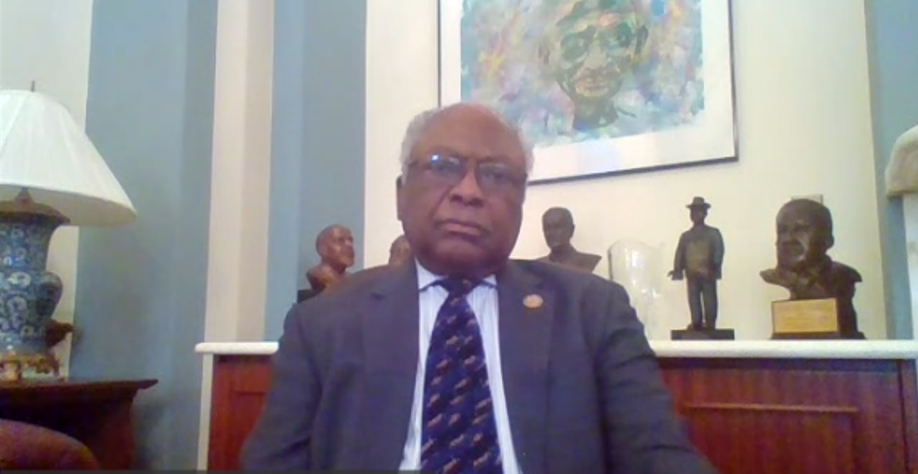House Majority Whip James Clyburn Calls for Closing Broadband’s Rural Digital Divide
June 30, 2020 — “Broadband has got to be the order of the day, going forward,” said Rep. James Clyburn, D-S.C., during a Tuesday webinar hosted by the Northern Virginia Technology Council. The webinar centered on the leadership Clyburn has exhibited in a slew of arenas, particularly, technology poli
Jericho Casper

June 30, 2020 — “Broadband has got to be the order of the day, going forward,” said Rep. James Clyburn, D-S.C., during a Tuesday webinar hosted by the Northern Virginia Technology Council.
The webinar centered on the leadership Clyburn has exhibited in a slew of arenas, particularly, technology policy.
Clyburn has been a leading voice in Congress on making high-speed internet accessible and affordable to all Americans.
Growing up in Sumter, South Carolina, Clyburn saw first-hand the impact the digital divide has on rural Americans.
He recalled an early memory of taking the South Carolina caucus to visit technology headquarters in Silicon Valley, stating that he “wanted them to get in tune with what I knew we were heading for.”
The greatest demand of the present day is having broadband in every home, which will effectively revolutionize education, health and energy, Clyburn said.
In a letter written June 1, Clyburn was joined by the entire South Carolina congressional delegation in calling on House Speaker Nancy Pelosi, D-Calif., Senate Majority Leader Mitch McConnell, R-Ky., House Minority Leader Kevin McCarthy, R-Calif., and Senate Minority Leader Chuck Schumer, D-N.Y., to include vigorous measures to invest in the expansion of affordable, high-speed internet access in any upcoming stimulus package aimed at addressing the COVID-19 pandemic.
In April, Pelosi appointed Clyburn chairman of the Select Subcommittee of the Coronavirus Crisis, which was dedicated to oversight of the $2 trillion Coronavirus Aid, Relief, Economic Security (CARES) Act.
The CARES Act allocated $100 million of federal funds to specifically helping rural communities connect to broadband, among funding other connectivity initiatives.
Clyburn referred to the pandemic as a benefit in the sense that it was instructive. It exposed fault lines in education, energy conservation and digital equity, he said.
A firm believer in telehealth, distance learning and telework initiatives, he stated that “we must use technology to penetrate rural communities in this country.”
On June 24, Clyburn was joined by members of the House Rural Broadband Task Force, a task force he created just over a year ago to provide coordination on ending the rural-digital divide, to introduce the Accessible, Affordable Internet for All Act.
Clyburn’s act is just one of many in the House Democrats’ proposed $1.5 trillion infrastructure bill, the Moving Forward Act.
The act would reserve $100 billion in federal funding to be used to build high-speed broadband infrastructure in unserved and underserved communities.
Energy and Commerce Committee Chairman Frank Pallone, D-N.J., spoke in support of the bill set to be presented on the House Floor.
“The pandemic has starkly demonstrated the need to ensure families all across the nation have access to high-speed internet,” he said Tuesday. “The Moving Forward Act provides over $100 billion to fund broadband-related programs, which will get us to 100 percent internet coverage.”
“This legislation provides $5 billion for mobile hotspots and connected devices to make sure students who don’t have access to these resources at home can effectively engage with remote learning,” Pallone added.
“We’re voting on an amount tomorrow, or the next day,” Clyburn said, “and we may not get it all this year.”
What is more important than the amount settled on is whether or not Congress responds efficiently, effectively and equitably, Clyburn said.









Member discussion